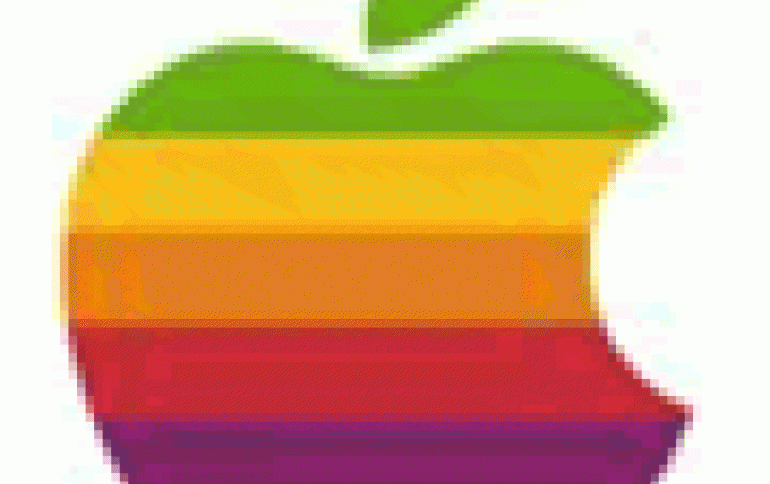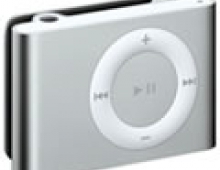
Japan Drops 'iPod tax' Idea
Japan is forgoing a copyright law revision to charge royalties on digital music players -- a proposal dubbed the ``iPod tax'' -- after discussions in a government panel produced no consensus on ways to police violations.
The decision Thursday from the Japanese Cultural Agency committee followed yearlong debate over how outdated the nation's system for levying an extra copyright fee on gadgets had grown, given the dramatic social changes in recent years in the digital content business, said Japanese government official Hiroyuki Suzuki.
Under today's system, the charge, generally 3 percent of the product's wholesale price, is included in the price tag so most shoppers aren't even aware they're paying it. But they apply to recording devices and other gadgets that can be used to duplicate copyrighted material.
Since last year, recording companies and other lobbies here have been grumbling that the same system should be applied to recording devices with hard-drives, including MP3 players like Apple Computer Inc.'s iPods as well as flash-memory players.
The panel's members, including academics and consumer-rights activists, were divided on where to draw the line on what constitutes copyright infringement, so speculation had been that there would be no agreement by the December deadline.
Although the media in Japan is calling the system the ``iPod tax,'' the money goes to recording companies, composers and artists and so it's technically not a tax. Similar systems exist in European nations.
Opponents say the system is an obsolete way of monitoring purchases of digital music and other works at a time when they're growing more widespread. Others say consumers are getting charged twice because they are often already paying royalties on digital purchases.
Apple in Japan had no comment on the government decision.
The iPod, which controls about 70 percent of the global market, has been a big hit in Japan, the home turf of rivals like Sony and Toshiba, which make their own music players. Recently, iPod's market share in Japan has grown to 60 percent.
Japanese downloaded 1 million songs in the first four days after the iTunes online music store opened in Japan in August -- the fastest pace for the service's launch in any of the 20 nations it has become available, including the United States.
Under today's system, the charge, generally 3 percent of the product's wholesale price, is included in the price tag so most shoppers aren't even aware they're paying it. But they apply to recording devices and other gadgets that can be used to duplicate copyrighted material.
Since last year, recording companies and other lobbies here have been grumbling that the same system should be applied to recording devices with hard-drives, including MP3 players like Apple Computer Inc.'s iPods as well as flash-memory players.
The panel's members, including academics and consumer-rights activists, were divided on where to draw the line on what constitutes copyright infringement, so speculation had been that there would be no agreement by the December deadline.
Although the media in Japan is calling the system the ``iPod tax,'' the money goes to recording companies, composers and artists and so it's technically not a tax. Similar systems exist in European nations.
Opponents say the system is an obsolete way of monitoring purchases of digital music and other works at a time when they're growing more widespread. Others say consumers are getting charged twice because they are often already paying royalties on digital purchases.
Apple in Japan had no comment on the government decision.
The iPod, which controls about 70 percent of the global market, has been a big hit in Japan, the home turf of rivals like Sony and Toshiba, which make their own music players. Recently, iPod's market share in Japan has grown to 60 percent.
Japanese downloaded 1 million songs in the first four days after the iTunes online music store opened in Japan in August -- the fastest pace for the service's launch in any of the 20 nations it has become available, including the United States.



















